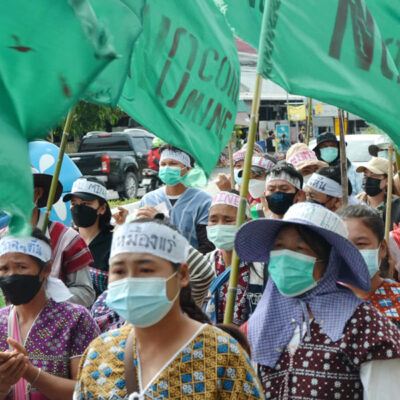When a massive power company proposed a coal-fired power plant to accompany a damaging new port in Lamu, a UNESCO Heritage Site in Kenya, an activist movement to stop it turned into a nation-wide campaign. The coastal plant threatened the local community’s health and livelihoods, from polluted fishing areas to toxic air pollution and displaced families. What’s worse, the power company and port builder did not adequately follow governmental regulations requiring a comprehensive environmental impact assessment and community input.
The activists with Save Lamu, a local organization long supported by AJWS, sprang into action and led protests to oppose the plant. But they knew that they would need a broader strategy—on the national level as well as the local level—to fight these projects. So AJWS in-country staff connected Save Lamu to two organizations—also AJWS grantees—with legal and national expertise. Natural Justice educated Save Lamu about relevant environmental laws that were being violated. Katiba Institute led a legal case on Save Lamu’s behalf against the Kenyan government, alleging that the government had failed to adequately consider the negative impacts of the port on local communities.
Together with support from AJWS, this burgeoning movement, dubbed deCOALonize, lodged a case in a Kenyan environmental court. In 2019, they won when the court froze plans for the power plant, putting the future of the project in question. And the progress doesn’t stop there. The movement diversified their strategies and succeeded in convincing key investors to pull out of the project, ensuring that the plan for the plant is no longer viable. This legal and advocacy victory by the national deCOALonize movement will impact more than 1.1 million people in the two counties of Kenya.
Finally, deCOALonize commissioned (with support from AJWS) an economic feasibility study by a prominent energy policy think tank in the U.S. The study determined that the coal plant would actually be detrimental to the Kenyan economy—and would be more costly over the long-term than the renewable energy sources that could meet Kenya’s energy demand. deCOALonize used these findings to continue to advocate against the coal plant, including with would-be international investors.
The coal-fire power plant that threatened Lamu is part of a vast network of existing and planned ports, highways, oil refineries and other projects across the country called the LAPSSET Corridor. Save Lamu, the organization that opposed the coal plant in Lamu, is a key member of deCOALonize and is working to organize the communities that will likely be harmed by LAPSSET projects to share information, organizing tactics and strategies. This movement aims to ensure that the rights of communities are respected. AJWS is incredibly proud to support this work and stand with the courageous activists who are leading the fight.



